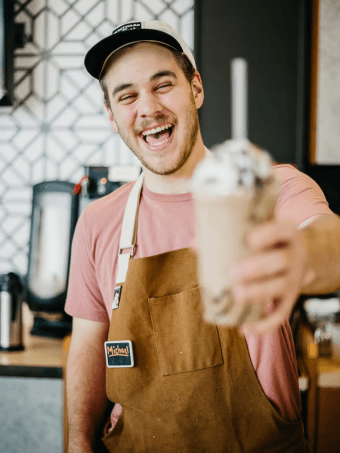Case Details
Oatly Group AB is a Swedish food company that has been producing alternatives to dairy products from oats since the early 1990s. Oatly's key markets are Sweden, Germany and the UK, and its products are available in 60,000 retail stores and 32,200 coffee shops around the world. Currently, Oatly is available in 11,000 coffee and tea shops in China and at more than 6,000 retail and speciality shops across the US, including thousands of Starbucks locations. The international success of the dairy company is currently under threat as consumers have been questioning its brand ethics after Oatly's actions in the most recent trademark dispute.
Oatly brought a lawsuit against Glebe Farm Foods, a family-run farming business based in Cambridgeshire, which has been growing oats since 2008. In the lawsuit, Oatly alleged Glebe Farm Foods had infringed Oatly's trademark by selling cartons of an oat-based drink called "PureOaty". Oatly accused Glebe Farms of relying on Oatly's reputation to seek an unfair advantage in the market by using a sign and packaging that is so similar or identical to their own that it is likely to cause confusion between the products for the public.
In August 2021, the judge dismissed Oatly's case at London's High Court. As Oatly did not present any evidence of actual confusion and had not sought any consumer feedback to support their claim, the Court concluded that there was only a "very modest level of similarity" between the Glebe Farm branding and Oatly's. The legal loss was accompanied by public disapproval, with multiple social media posts under hashtag #FreePureOaty and even a 130,000-signature petition on Change.org, condemning the unnecessarily aggressive behaviour of the multinational company.
From image of a victim to a trademark bully
Oatly is no stranger to legal battles or controversy. The Swedish company has an extensive trademark portfolio that includes “wow no cow”, “post milk generation”, “oatcuisine”, and perhaps one of their most controversial slogans “IT’S LIKE MILK BUT MADE FOR HUMANS”.
Back in 2015, LRF Mjölk, one of the biggest Swedish dairy producers, sued Oatly for the slogan that seemingly disparages cow milk. Oatly lost the case and was ordered to stop referring to its own product as milk and to stop implying that cow milk is either unhealthy or not fit for human consumption. Back then, Oatly responded by publishing the text of the lawsuit, making LRF Mjölk look like it was bullying the smaller oat company and discouraging fair competition. Despite the Swedish ban, Oatly has re-launched its “controversial” campaign and slogan in various countries since. Repeatedly fuelling the debate over whether the tagline “IT’S LIKE MILK, BUT MADE FOR HUMANS” is an irrefutable fact, or a misleading provocation of the dairy industry.
In March 2019, Oatly applied for an EU trademark for IT’S LIKE MILK BUT MADE FOR HUMANS in classes 18, 25, 29, 30 and 32. The EUIPO raised objections to applications in certain classes on the basis that the trademark was not distinctive enough to be registered. Oatly appealed the decision twice, and the matter was passed to the General Court. The Court ruled that the “paradoxical, surprising, and thought-provoking” nature of the trademark was capable of triggering a cognitive process in the minds of relevant consumers, making it a memorable indicator of origin, which meets the threshold for a distinctive character
Although successful in their trademark registration, the once positively-perceived case now stands in stark contrast with their most recent legal dispute against Glebe Farm Foods, where Oatly has now assumed the role of the bully against a smaller brand in the media narrative. We have witnessed multiple cases that follow a similar pattern, with well-known brands such as Hugo Boss and Red Bull facing terrific backlash after issuing cease-and-desist letters to smaller companies. Other companies that are considering strict enforcement of their intellectual property rights should keep in mind that every attempt to establish a monopoly over descriptive terms can cause a negative public reaction that can even threaten the company’s sales. Business owners should carefully consider the direction of their trademark strategy that wouldn’t go against established brand reputation.


